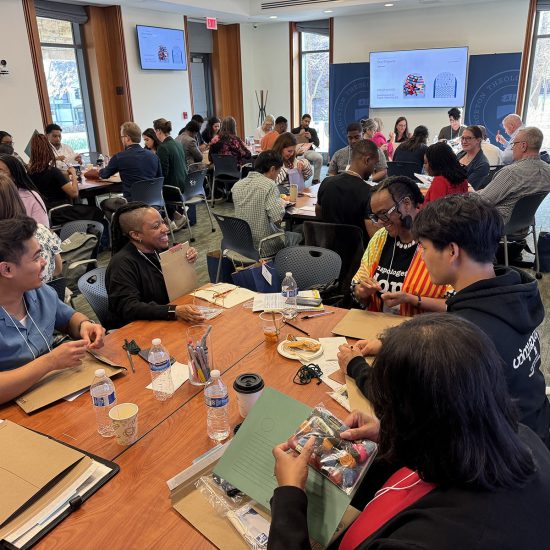Five Midwestern pastors find bivocational ministry both rewarding and a bit frustrating. Asked what they would share with a roomful of seminarians, they offered this advice:
• Recognize boundaries and don’t miss what God is doing, Dylon Young said. Young serves Miracle Hills Community Baptist Church in Omaha, Neb., and holds down a full-time secular position.
“I would first tell them they’re not going to be able to do it all. This is a marathon, not a race,” he said, adding they should read Acts 6 to help prioritize.
“I would also tell them not to miss what God is doing in their role as a bivocational pastor. In other words, it’s not an accident that they are bivocational. Take advantage of this opportunity that God has given them to be bold for the gospel of Jesus Christ.”
• Recognize the need to communicate. Melissa Newberry, pastor of Grandview Baptist Church in Kansas City, Kan., agreed that a bivocational minister can’t nor should be required to do it all. Communication with members is key.
“You…need to be involved in an ongoing conversation with your church as to what they consider as priority or priorities for you as their pastor and the needs of the congregation,” she said.
In addition, pastors should recognize their humanity and their need for help. “Be intentional…. Allow yourself grace. Give yourself permission to be human,” she said.
“Build a support team of fellow clergy whom God will use to walk with you on this journey. In response to the call God has placed on your life, God never expected you to nor does God ask you to work in a vacuum,” she added.
Rick Neubauer, pastor of Slate Valley Baptist Church in Geuda Springs, Kan., emphasized communicating with the other employer as well.
“Let them know what is going on and be alert to possible conflicts,” he said. “That also means work as if working for the Lord at your tent-making job. If your employer sees your commitment to the company or job, it will make it much easier to be flexible should the need arise. Do company work on company time and ministry work outside of the job.”
• Recognize the church’s uniqueness, noted a pastor who asked to remain anonymous. “Recognize the character and the value of small churches,” he said. “Do not take a bivocational pastorate with the idea that in a few years you will be able to grow this church to the point you can be full-time.”
He added that those who do “end up frustrated or fired because they tried to make the church into something it was not.”
Find the church’s contribution to kingdom work. “Take time to learn the uniqueness of your church and find the special ministry niche God has for it. Many churches will essentially remain the same size they are, but that doesn’t mean they are being unfaithful or do not have significant ministries,” he counseled.
• Recognize the commitment. “Don’t treat it as a part-time job,” Michael Justice, pastor of First Baptist Church in Milton, Kan., emphasized. Some bivocational pastors do not get involved with the congregation, sometimes choosing to just concentrate on preaching. “Understand that this is more than a part-time job,” he said.
• Recognize that your family must come first. “Your spouse and family are your first ministry!” Neubauer declared.
Because his three children are grown and on their own, bivocational ministry is “a little easier,” he said. But he and his wife concentrate on their relationship, working out at the local YMCA, setting aside a regular date night and hosting a family dinner each month. They also coordinate their ministries so that they don’t have separate commitments on different nights.
All the pastors pointed to the importance of family. Justice and his wife “recognize we need time away…time to renew and regenerate.” His church helps make that time, sending them to a marriage retreat and guarding other time for them. Justice and his wife also keep a date night each week.
The Young family watches a movie together each week. Their daughter is away at college, while their two sons are still at home. Young leverages technology to work at home sometimes, where he can take a break to “horse around” with his sons.
• Recognize and care for your personal needs. All the ministers also emphasized making time to care for themselves. Some focus on physical fitness. Others spend time with family and friends, or pursue a passionate hobby. All declared that bivocational pastors must intentionally take advantage of days off, vacations and other opportunities to recharge. Many also have a trusted colleague with whom to share, bounce ideas and occasionally vent.






